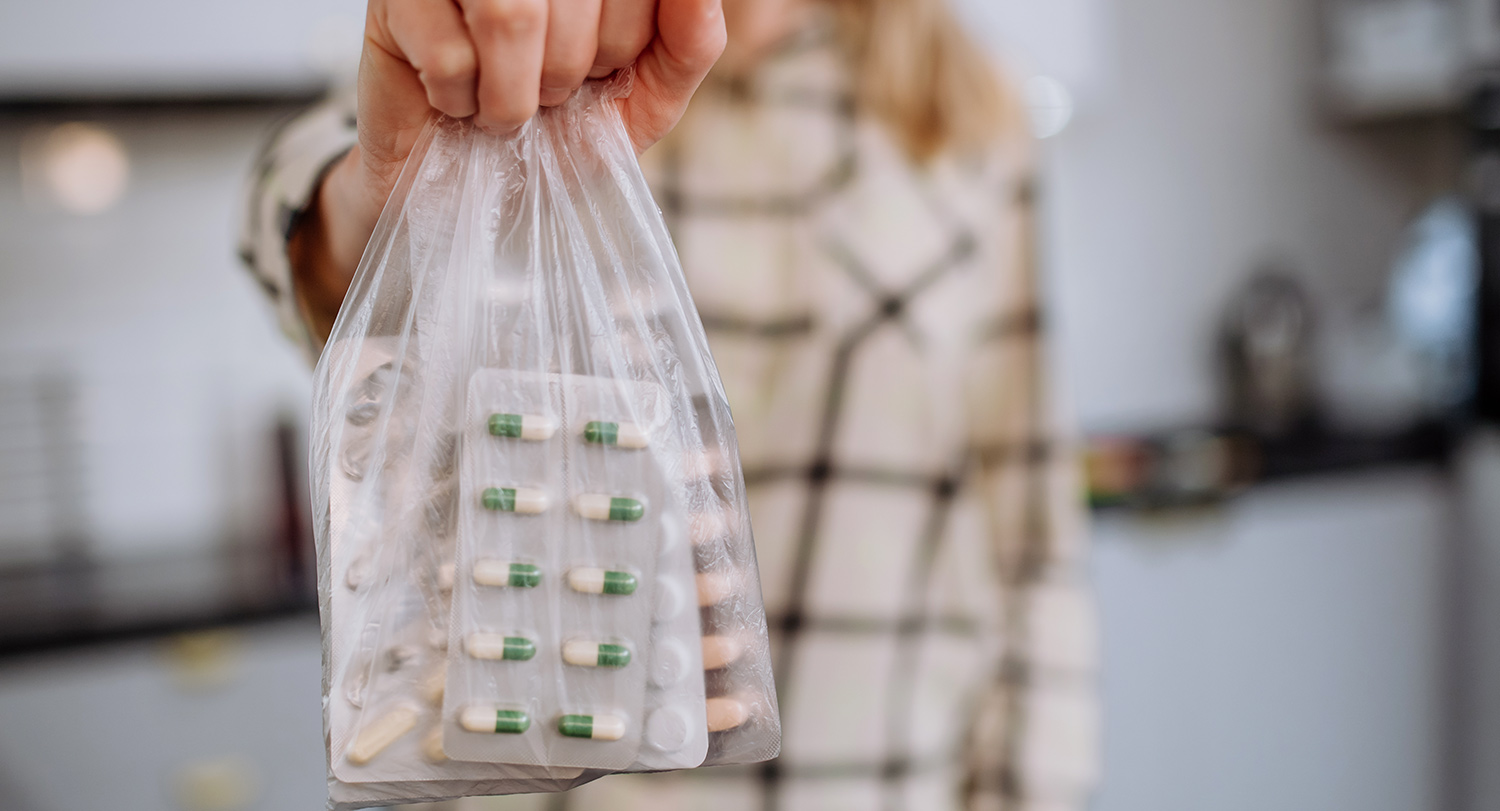
With 40 percent of prescribed medications going unused, it’s important to recognize the personal and environmental risks associated with improper disposal.
Jordan M. Ballou, Pharm.D., clinical associate professor, explains how to properly dispose of medication and supplements to reduce accidental or intentional misuse and limit environmental impact.
Why it matters: “Drug poisonings account for an average of 1.1 million emergency room visits each year in the U.S.” Ballou says. “While your first thought might be to flush unused pills and liquids, there are several safer alternatives that prevent misuse as well as their release into ground water and surface water.”
What to know: According to the Environmental Protection Agency, research shows that pharmaceuticals entering the environment through flushing or other means negatively affect aquatic ecosystems, including fish and animal populations. For example, antibiotics are designed to kill living organisms and are poisonous to aquatic plants.
What to do: The South Carolina Department of Health and Environmental Control advises against flushing any medications due to additional environmental exposure to animals and humans.
Over 90 percent of South Carolinians have a year-round Take Back site within a 20-mile radius of their zip code. This includes chain and independent pharmacies. Additional safe and anonymous collection sites are also available during the DEA’s National Take Back Days every April and October.
To safely dispose of medicine at home:
- Put solid or liquid meds in a resealable, plastic bag or container. Do not crush tablets or capsules.
- Mix used coffee grounds, cat litter or dirt into the bag or container to discourage accidental or intentional ingestion or misuse. Then seal it.
- Place the sealed container in the household trash (not your recycling).
- Make sure you remove all personal information from labels and empty containers before disposing or recycling them.
USC’s Health Watch series helps readers deepen their understanding of the latest health recommendations and news through the expertise of our clinical faculty.